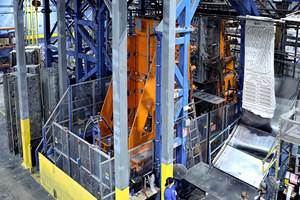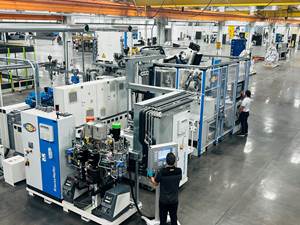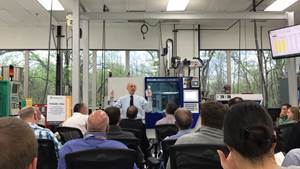I’m Your Employee, Working 9 to 5...and Worrying 24/7
Why it’s critical to create relationships—true relationships based on trust and honesty—with employees.

Roberta is your employee. She is a single mother of three and lives with her mom and sister’s family. She drives to work, and recently her car broke down. Roberta doesn’t have the money or the resources to call a tow truck or get the repairs done. This means Roberta couldn’t take her three children to preschool, kindergarten, and middle school. By the time she found rides for them, she was going to be late for work. She just didn’t show.
Last week, you told her if she were late one more time, she would be fired. Roberta is thinking: Okay, I’m late, why call? She is pretty sure she can’t stop bad things from happening to her and her family.
Roberta, now jobless, asks a friend to watch her children so she can get to a temp agency to find work elsewhere. She gets a job that starts the next day. When she gets home, her friend asks her to watch her kids tomorrow.
No matter where Roberta turns, she faces a dilemma. Most likely, Roberta will watch her friend’s children rather than start the new job. Why?
R-E-L-A-T-I-O-N-S-H-I-P-S
When you have employees who are living in daily instability, meaning that there are not enough resources for today, let alone tomorrow, your employees are living in the moment. These employees solve problems all day long, reactively, to survive. You have employees working for you 9 to 5, but they are also worrying 24/7 about housing/rent, food, healthcare, transportation, debt, COVID, etc.
If you are worrying about eviction and have nowhere to go, a car that has 200,000-plus miles on it and that needs a new engine, or a need for a “new” car because you are now taking in your sister’s four kids, what is for dinner tonight when your wallet is empty and the credit card is maxed out? Would you be giving 100% in the workplace?
So many of the listed concerns are about meeting immediate needs. It is easy to understand how instability forces people to live in “the tyranny of the moment.” This leaves little time for future planning. (Business is all about future planning.)
A future story often serves as a motivation or a coping strategy for an employee in the workplace, particularly when working relationships with supervisors or other employees, or even job duties, are not fulfilling or rewarding.
How to you help your employees create future stories? First, create relationships—true relationships based on trust and honesty—with employees. Begin working side by side with employees. Have discussions about time, possessions, money, food, destiny, language, etc. Explain to employees how the company views each of those elements and why certain policies, procedures, benefits, and training are put in place.
Building relationships is your driving force with this employee demographic. Build upon it, and you will recognize positive results in the lives of your employees.
About the Author: Ruth K. Weirich, MBA, is an author, trainer, and management professional experienced in business operations efficiency and profitability. She is also a past president of aha! Process, an education and training company specializing in economic class issues. Contact: rkweirich@ahaprocess.com; ahaprocess.com.
Related Content
Teaching Kids About the ‘Magic’ of Manufacturing
Making something out of (almost) nothing is an ‘eye opener’ for youngsters in their first exposure to plastics processing.
Read MoreKraussMaffei and NIAR Propel Injection Molded Thermoplastic Composites
The maker of plastics processing equipment has placed a machine and an injection molding expert in NIAR’s ATLAS lab in Wichita, Kansas, to help molding, composites and aerospace take off.
Read MoreThe Experience Curve and Well-Trained Process Technicians
Pairing external big picture training with internal job-specific instruction can help your process technicians meet quality expectations as well as production targets.
Read MoreBlow Molder with a Mission: CKS Packaging Shares Gains Of Its Phenomenal Growth
From three machines in 1986 to 27 plants nationwide today, this family-owned processor has prospered through unwavering customer service, committed employees and dedicated service to its community.
Read MoreRead Next
See Recyclers Close the Loop on Trade Show Production Scrap at NPE2024
A collaboration between show organizer PLASTICS, recycler CPR and size reduction experts WEIMA and Conair recovered and recycled all production scrap at NPE2024.
Read MoreBeyond Prototypes: 8 Ways the Plastics Industry Is Using 3D Printing
Plastics processors are finding applications for 3D printing around the plant and across the supply chain. Here are 8 examples to look for at NPE2024.
Read MoreMaking the Circular Economy a Reality
Driven by brand owner demands and new worldwide legislation, the entire supply chain is working toward the shift to circularity, with some evidence the circular economy has already begun.
Read More

























